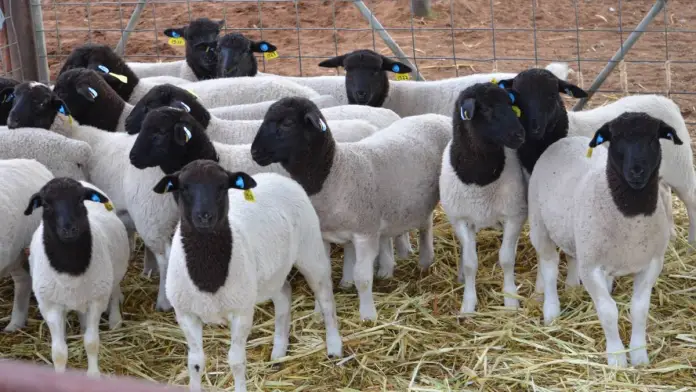Sheep farming can be lucrative if you choose the right breed. There are various types of sheep breeds that can make you good money, but in this post, we will focus on the Dorper, which has recently gained popularity with farmers.
The breed is economical compared to others as it has a faster growth rate and is resistant to diseases. They are also good grazers and can graze at a very early age.
According to Soy Member of Parliament (MP) David Kiplangat, who is also a Dorper farmer, the venture requires a lot of professionalism for maximum output.
“In Dorper farming, you need to be professional. It can be expensive, like any other business, when you are starting and setting up structures. Patience is key,” says Kiplagat.
Dorper Sheep: A Highly Profitable Venture That No One Talks About
His farm manager, who is a Bachelor’s Degree holder in Veterinary and Animal Health and production, oversees the feeding and health of the animals.
He says that for sheep to reach maturity faster, they need a balanced diet. He notes that sheep feed intake is way low compared to dairy cows.
“We plant maize for silage and grass for hay and only buy supplements, including wheat bran and maize germ, to ensure a balanced diet,” he says.
For disease prevention, the farm, which hosts 100 improved Dorper, follows a strict vaccination plan. Spraying the animals with acaricides is also done to prevent tick attacks.
“Vaccination and deworming processes begin at the stage of three months for sheep. They are fed twice in a day, with the diet being closely observed,” says Timothy Kosgei, the farm manager.
MP Finds Big Money From Breeding Most Superior Dorper Sheep
The sheep are housed in neatly structured rooms that are kept warm to prevent pneumonia infections among the younger flocks.
Kiplangat says the demand for mutton is high in Dubai. He sells a four-six-month-old ram at between Sh50,000 to Sh60,000. The year-old sells at Sh100,000 while the fully developed at two and a half years retail at between Sh170,000 to Sh200,000. A mature ram from his farm weighs up to 137 kilos.
“You don’t have to have a lot of land to keep sheep. We have kept 400 sheep on a 0.2-acre farm. To make it, don’t look for quick returns because you might get disappointed. Be patient and consistent, and the rewards will come… All is possible with determination and commitment. In only four years, we have managed to upgrade from grade 4 to 1,” Kiplagat advised.









